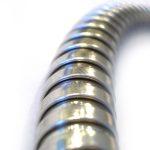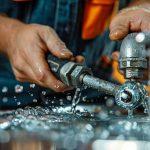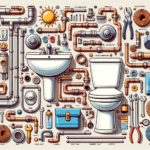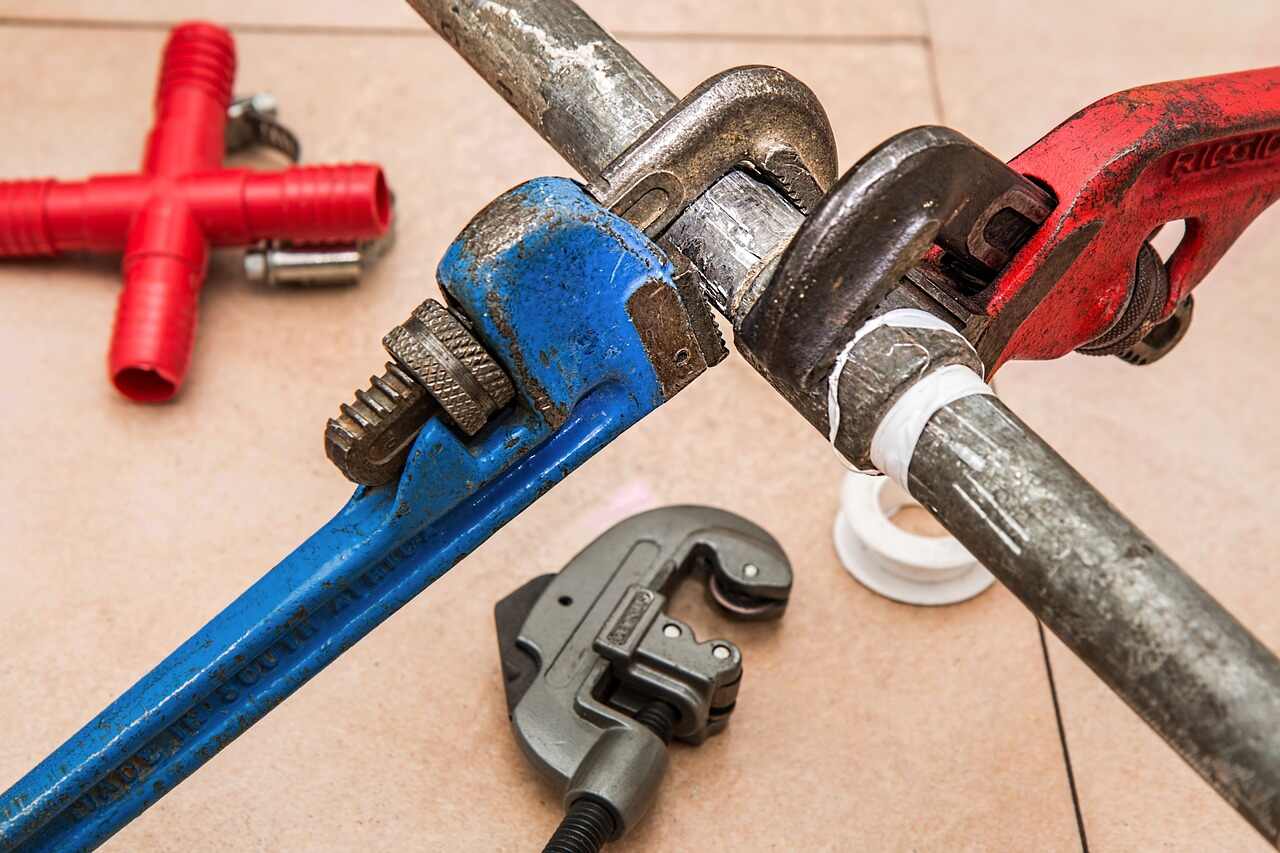Believe it or not, proactive approaches towards plumbing maintenance can ensure a smooth-running system and save homeowners a fortune. From water heater inspections to regular checks for pipe leaks or blockages, understanding the preventative measures necessary can be a real game-changer for your home.
Contents
- The Importance of Preventative Plumbing
- Common Household Plumbing Issues
- Regular Plumbing Inspections: When and Why
- Proactive Pipe and Drain Maintenance
- Annual Water Heater Check-ups
- Preventing Leaking Taps
- Money-Saving Benefits of Consistent Maintenance
- Tips for Maintaining Septic and Sewer Lines
- Hardware Upgrades that Boost Efficiency
- Consulting with Professional Plumbers
- Emergency Plumbing: Prevention versus Repair
- Preventative Plumbing for Water Efficiency
- A Stitch in Time Saves Nine
- Frequently Asked Questions (FAQ)
The Importance of Preventative Plumbing
The essence of preventative plumbing cannot be overstated. A small leak in a pipe, if left unchecked, could result in hundreds to thousands of gallons of water wasted and substantial costs over time.
In many cases, easy fixes on water leaks can save homeowners up to 10% on their bills. Plus, it’s worth noting that maintaining your piping system also contributes to conservation efforts by preventing unnecessary water wastage.
Bear in mind that lack of maintenance could lead you to bear the full out-of-pocket expenses for necessary repairs or replacements since many homeowners’ insurance policies do not cover them. So investing time into regular, simple maintenance checks truly pays off in the end.
Proactive maintenance also bolsters the efficiency and longevity of your home’s appliances and fixtures. Keeping tabs on your water heating system ensures optimal performance and comfort in your home.
Common Household Plumbing Issues
Identifying common plumbing problems is the first step towards effective preventative maintenance. One major issue most homeowners experience is drain blockage attributable to various causes like hair build-up, greasy residues, food particles or even tree roots intruding into the sewer line.
Leaky taps and fixtures can also be quite common, leading to water wastage and inflated bills. Often these leaks result from worn out components that need replacing or repairing.
Toilet woes like running toilets or issues with the flush system are not rare either. An inefficient toilet could use up to three times more water per flush, pointing towards potential savings if it’s properly maintained.
Struggles with low water pressure might point to problems in your pipe system. Potential culprits may include debris build-up, pipe corrosion, or even leaks that compromise water flow to your taps and showerheads.
Water heater difficulties like diminished hot water supply or noisy operations could signal sediment build-up or other mechanical issues.
Regular Plumbing Inspections: When and Why

Regular plumbing inspections act as a precaution to avoid costly repairs by catching small issues before they become expensive problems. An inspection schedule hinges on several factors such as the age of your home, its plumbing history, and any recent renovations or installations.
New homes typically require less frequent checks since their plumbing systems are still fresh. However, this does not excuse you from such inspections as faulty installation or materials can lead to unexpected troubles.
Aged homes, usually over 50 years old and with original plumbing, deserve more attention due to potential pipe deterioration over time. Ensuring consistent checks for these older systems will help avoid plumbing disasters and hefty repair bills.
If your home has undergone a recent renovation that involved significant changes in the plumbing layout, a follow-up check is important to ascertain everything functions properly.
Also, having experienced any past major plumbing issues such as sewer line back-ups or water heater failures should prompt more frequent inspections to prevent recurrences.
Proactive Pipe and Drain Maintenance
Being proactive about pipe and drain maintenance is a surefire way to keep your plumbing system in top-notch condition. Regular drain cleaning can prevent clogs from hard-to-decompose substances like grease or certain food particles.
Careful attention to your home’s water pressure also pays dividends. Extremely high pressure could burst your pipes, while too low of pressure might point to a leak somewhere in the system. Getting the balance right ensures the longevity of your pipes and water appliances.
Occasionally check under sinks and in basements for moisture or puddles that could signal a leak, and address the issue promptly.
Being mindful of what goes down your pipes greatly contributes to their overall health. Avoid disposing of items like cooking oils, dental floss, cotton swabs or even flushable wipes down drains or toilets—they often result in severe blockages.
Engaging a qualified plumber like Dan’s Plumbing for semi-regular inspections will help reinforce your proactive maintenance strategies, ensuring you get ahead of any potential issues.
Annual Water Heater Check-ups
An annual water heater inspection is key in maintaining your unit’s longevity and efficiency. These check-ups can help prevent sediment build-up that notably reduces the efficiency of the heater and elevates energy costs by 10-15%.
Routine assessments also include checking for leaks that could lead to water waste or damage to surrounding areas. A properly functioning water heater system ensures a comfortable living environment for the home occupants.
Scalding is another potential danger from water heaters that aren’t properly regulated. Regular checks ensure the thermostat settings are optimal, protecting your family from possible burns due to overheated water.
Assessing the condition of the tank itself is also essential. Corrosion and rust could lead to tank failure and significant water leaks, causing substantial damage and repair costs.
Additionally, ensuring timely replacement of typical wear-and-tear components like the anode rod can greatly increase the lifespan of your water heater. Consult with a professional service like Dan’s Plumbing for optimum results.
Preventing Leaking Taps

Most homeowners, at some point or another, encounter the common issue of leaking taps. Not only is the continuous drip of water annoying, but it also amounts to significant water wastage over time affecting your utility bills. Even more worryingly, in the long run these leaks can cause water damage resulting in repair bills that hit you extra hard if insurance doesn’t cover them. This makes quick fixes essential.
Generally, leaks result from worn-out components such as washers, seals, or cartridges within your taps. These components being subjected to the repeated pressure of turning taps on and off tend to wear out over time, leading to slow but sure leaks.
Determining the tap type, whether it’s a ball tap, cartridge tap, or a compression tap, can help you identify the potentially damaged part. With fundamental plumbing skills and appropriate tools like adjustable wrenches and washers – or replacement parts at hand – it’s possible to tackle the issue yourself.
If DIY home repairs aren’t really your thing, service providers like Dan’s Plumbing are always ready to consider your concerns and streamline professional assistance for tap repairs and replacements.
Money-Saving Benefits of Consistent Maintenance
Maintaining a regular schedule for plumbing maintenance not only aids in reducing unexpected breakdowns but also offers numerous financial benefits. For starters, catching leaks early saves you substantial cash by preventing wasted water that could run up your utility bills.
Timely pipe and fixture repairs avoid larger-scale, more expensive restorations in the future. This preventative approach helps homeowners secure peace of mind without having to worry about extensive out-of-pocket expenses for major repairs.
Furthermore, regular maintenance of your home appliances, particularly the water-using ones like water heaters, can extend their life by a few notable years. This extension obviously cuts back on early replacement costs that can be steep.
Tips for Maintaining Septic and Sewer Lines
The sewer line is an integral part of any home’s plumbing system. Its function entails steering all wastewater from your home into your local sewer system or septic tank. Regularly flushing your septic tank is one reliable way you can avert blockages. Depending on the size of your tank and the number of people in your household, plan for septic tank pumping every three to five years. If your household frequently uses a garbage disposal, consider more frequent pumpings.
To avoid tree roots infiltrating into the sewer line causing obstructions, plant trees away from the path of your sewer line. Wire mesh tubes can offer added protection when placed around your pipes – an excellent tip if you’re planting new trees.
Moreover, mindful habits like properly disposing kitchen wastes make a considerable difference. Put things like cooking oils, food particles or even so-called ‘flushable’ wipes in your bin rather than down your drains or toilets. And take advantage of the tips and assistance offered at reputable sites like this informative plumbing resource.
Hardware Upgrades that Boost Efficiency
A significant upside of regular maintenance is having an up-to-date assessment of your plumbing infrastructure. Over time, with the evolution of technology, newer fixtures and appliances have come into the market boasting increased efficiency over their older counterparts.
Consider an upgrade to contemporary water-efficient fixtures like low-flow showerheads or dual-flush toilets which can reduce your water usage by 20-40%. This reduction translates to conspicuous savings on your water bills.
Swap out old, corroded pipes for newer materials better at preventing leaks. Copper, PVC, or PEX piping are typically more durable and reliable than older iron or lead pipes, subsequently improving your plumbing system’s efficiency.
Major appliance upgrades can yield substantial energy savings too. For instance, energy-star-rated dishwashers and washing machines use less water and power cutting off extra dollars from your annual utility bills. On a similar note, replacing an outdated water heater with a more efficient model can save up to 10-15% in energy costs.
Consulting with Professional Plumbers
While proactive maintenance methods are great for keeping minor issues at bay, it’s wise to consult with professional plumbers for routine examinations and complicated repairs.
Engaging expert service providers helps you gain objective insights into possible problem areas in your system that you might inadvertently overlook. Plumbing professionals have the right knowledge and tools to thoroughly inspect every inch of your home’s plumbing system. They can diagnose potential issues quickly and provide effective solutions.
From cleaning drain lines to checking the pressure, from inspecting for leaks to assessing the condition of fixtures and appliances – a licensed plumber can address all this and more. Regular visits from professionals not only keep your system in check but also provide powerful validation for the home maintenance efforts you’ve made.
Also remember that working with a professional is crucial when dealing with significant changes like renovations or installations. An expert will properly execute changes ensuring everything is correctly integrated into your existing system. This saves you from future trouble that could stem from improper installation or fitting.
Emergency Plumbing: Prevention versus Repair
You’ll undoubtedly agree that an ounce of prevention is worth a pound of cure. It’s especially true when it comes to the plumbing industry. If you’re constantly dealing with emergency plumbing issues, it may be time to think about preventive measures.
A single leak in a pipe, for instance, might not seem much of an issue at first. But if not tackled swiftly, the prolonged dripping can waste hundreds to thousands of gallons of water over time, and also raise your water bill significantly. In fact, by fixing easily corrected household water leaks, it has been observed that homeowners end up saving about 10 percent on their water bills.
You would be mistaken to disregard the importance of regular maintenance in terms of appliances too. By regularly maintaining your water-using appliances like water heaters, you can extend their life by several years. Consequently, this could save you hundreds or even thousands of dollars that would have otherwise been spent on replacement costs. Plus, conducting an annual water heater flush can combat sediment build-up which can reduce the efficiency of your heater and increase energy costs by 10-15 percent.
The monetary impact isn’t just restricted to minor leaks or appliance longevity, even sewer line backups and repairs can be excessively expensive affairs.
Preventative Plumbing for Water Efficiency

It’s common knowledge that water, our most precious resource, should never be wasted. Surprisingly enough, regular plumbing maintenance also plays a significant role in promoting water conservation. If you want to contribute to this cause while also reducing your water bills, preventive plumbing measures could be the solution.
Plainly put, old fixtures are inefficient and tend to use more water. But how much exactly? Updating these outdated elements can lead to tremendous water savings. You could potentially decrease your water usage by 20-40 percent just through regular fixture updates and maintenance. This, in turn, would definitely have a positive impact on lowering your utility bills.
This is exactly where preventative plumbing brings its A game: minimizing not only your expenses but also your environmental impact through efficient use of water resources accordingly. From leak detection and repair to updating old fixtures and appliance maintenance, every effort counts.
The bottom line is that investing in preventative measures today will save you stressful emergencies tomorrow not just in monetary terms but also towards contributing to a sustainable future.
A Stitch in Time Saves Nine
In conclusion, the importance of preventive plumbing cannot be overstated. Not only does it help homeowners avoid costly repairs and replacements down the line, but it also promotes efficient water usage. By including timely checks and updates as an essential part of your home maintenance routine, you’ll truly understand how a stitch in time indeed saves nine.
Frequently Asked Questions (FAQ)
Why is it necessary to maintain my home’s plumbing system?
Regular maintenance of your plumbing system prevents small issues from becoming major problems, saving you significant money on potential repairs or replacements. It also ensures efficient and optimal operation of your fixtures and appliances while playing a critical role in conserving water by dodging unnecessary wastage and leaks.
How can I identify a plumbing issue early on?
Being watchful of some common signs like leaky taps, blockages in drains, low water pressure or fluctuations in your water heater performance might point out potential issues. Regular plumbing inspections can help identify and address these problems early.
What steps can I take to maintain my pipes and drains?
Regular cleaning of your drains, mindful disposal of wastes, prompt attention to any leaks, and maintaining the right water pressure are some of the proactive steps towards pipe and drain maintenance. Also, getting regular inspections from expert plumbers fortifies your maintenance efforts.
How often should I get my water heater checked?
An annual water heater check-up suffices to maintain energy efficiency and longevity of the appliance. This inspection helps prevent potential problems like sediment build-up, leaks, damage to the tank, etc. For optimal functioning and comfort, it’s advised to replace wear-and-tear parts timely.
What are some cost-effective ways to increase my plumbing system’s efficiency?
Several hardware upgrades increase the efficiency of your plumbing system. Updating old fixtures with water-efficient alternatives, replacing old pipes with durable material, or upgrading your water appliances to energy-efficient models can lead to a significant decrease in your water and energy bills.
How can calling a professional plumber help?
Consulting with a professional plumber helps you gain an objective assessment of your home’s plumbing system, ensuring every inch is thoroughly inspected. They can diagnose potential issues swiftly and provide effective solutions promptly. Not to mention, they’re crucial when dealing with significant changes like renovations or installations.
How can proactive plumbing save me from costly repairs?
Being proactive in plumbing maintenance can save you from water damage repair bills, inflated utility bills resulting from leaks, and extensive out-of-pocket expenses for major repairs or replacements. In essence, catching problems early and maintaining a regular check and update schedule saves you significant money in the long run.
Does preventive plumbing contribute to water conservation?
Definitely! Preventive plumbing plays an unexpected but important role in conserving water. Fixing leaks promptly, replacing outdated, water-wasting fixtures with efficient ones, and maintaining the water appliances can lead to significant water savings in your home – thereby contributing to overall water conservation.
- Clean & Green: Eco-Friendly Cleaning Tips for Your Plumbing Fixtures - October 8, 2024
- Classic to Contemporary: Choosing the Perfect Toilet Suite for your new Bathroom Design - September 19, 2024
- Chlorine Conundrum: The Benefits of a Water Filters in Your Sydney Bathroom - August 28, 2024
Related posts:
 Flexible Hose Hazards: Why Regular Checks Are Essential for Bathroom Safety
Flexible Hose Hazards: Why Regular Checks Are Essential for Bathroom Safety
 Water Wisdom: Why You Should Consider New Water Saving Fixtures to Save on Your Brisbane Water Bill
Water Wisdom: Why You Should Consider New Water Saving Fixtures to Save on Your Brisbane Water Bill
 Flood Prevention 101: How to Detect and Stop Leaks Before They Soak Your Bathroom
Flood Prevention 101: How to Detect and Stop Leaks Before They Soak Your Bathroom
 Pipe Dreams: Proactive Tips for Avoiding Costly Repairs in Your Bathroom
Pipe Dreams: Proactive Tips for Avoiding Costly Repairs in Your Bathroom
 Green Goals: How Eco-Friendly Plumbing Fixtures Are Taking Over Sydney Bathrooms
Green Goals: How Eco-Friendly Plumbing Fixtures Are Taking Over Sydney Bathrooms
 Know Your Pipes: A Guide to Understanding Your Aussie Bathroom Plumbing
Know Your Pipes: A Guide to Understanding Your Aussie Bathroom Plumbing



